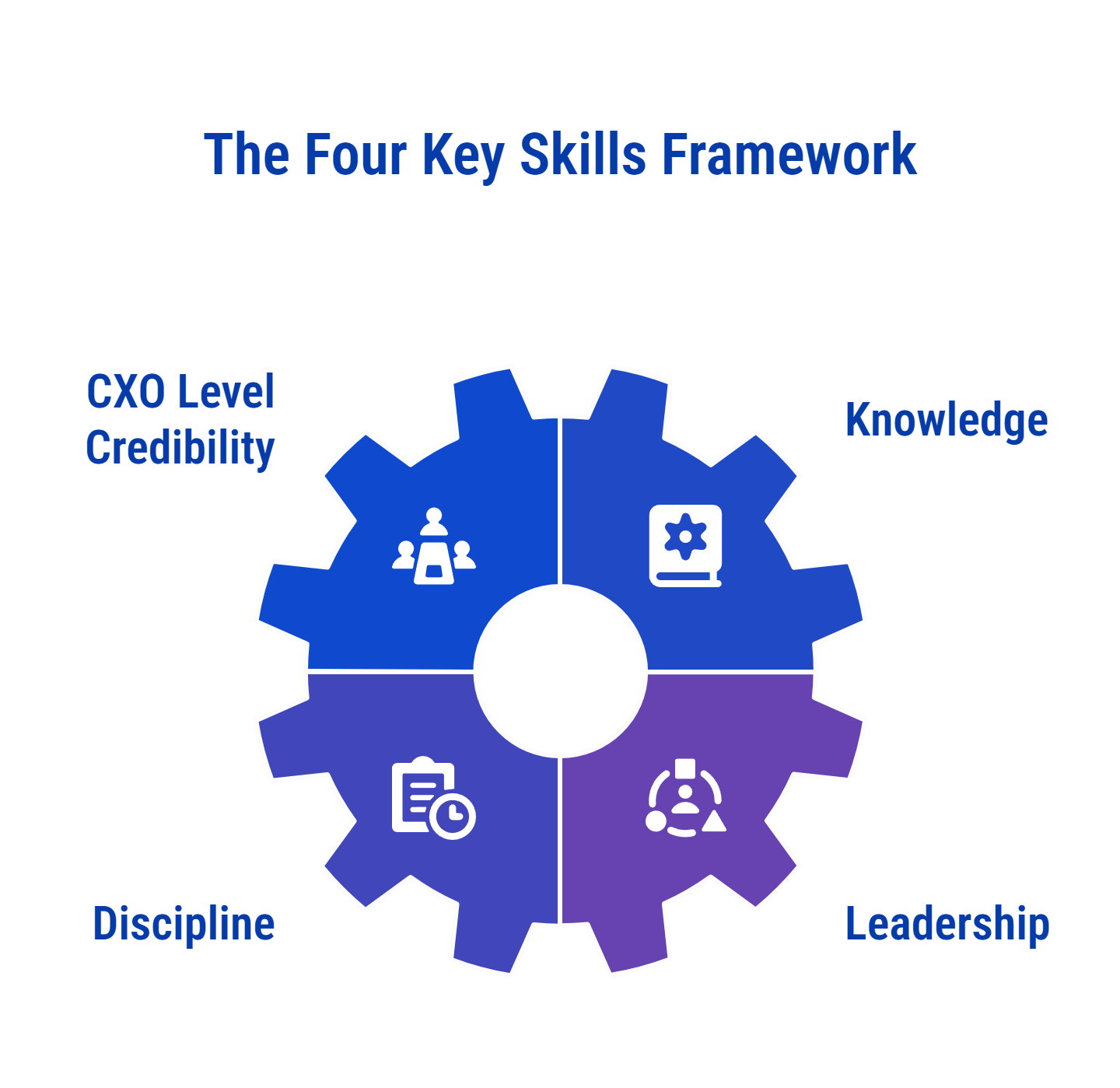Selling managed services isn’t the same as selling products. You’re not just pitching features or delivering a one-time solution—you’re asking customers to commit to an ongoing partnership where the value is often intangible and measured in business outcomes, not units sold.
If you’ve tried applying traditional product sales tactics to managed services, you’ve probably run into challenges: longer sales cycles, multiple decision-makers, complex deal structures, and buyers who need more than a features list to be convinced. To succeed, you need a different skill set—one that helps you build trust at the executive level, deeply understand your customer’s world, manage deals with precision, and lead your internal teams through a collaborative sales process.
This guide will walk you through a proven framework and practical steps for selling managed services effectively, including how to shift from selling hours to selling outcomes, and how to connect your offer to the real business value your customers are seeking.
Key Takeaways
- Shift from features to value. Your prospects care about solving problems and achieving measurable results—not how many service hours you can deliver.
- Master the four essential skills. CXO-level credibility, deep knowledge, sales discipline, and leadership are the foundation for winning complex, service-led deals.
- Tailor your approach to your audience. SMBs and enterprise buyers have different priorities—know what matters to each and align your pitch accordingly.
Why Selling Managed Services Requires a New Approach
Managed services buyers—especially in SMBs and mid-market segments—aren’t just purchasing a service. They’re looking for a trusted partner who can help them improve operations, reduce risk, and achieve long-term goals.
Unlike product sales, where you can showcase tangible features, service-led sales require:
- Making the value clear when the “product” is largely intangible.
- Navigating longer buying cycles with multiple stakeholders.
- Proving you understand both the technical requirements and the business impact.
If you rely on a product-focused pitch, you’ll struggle to gain traction. Instead, you need to position yourself as a strategic partner capable of delivering business outcomes—not just services.
Related: Elevating Customer Experiences and Driving Business Value in Managed Services
The Four Key Skills for Selling Managed Services Successfully
This framework is designed to help you succeed in the complex world of service-led sales. These skills build on one another, creating the foundation for closing deals that are profitable, scalable, and beneficial for both you and your customer.

1. CXO-Level Credibility
To sell managed services effectively, you need the ability to engage confidently with senior executives. That means:
- Speaking their language—focusing on business outcomes, not technical specs.
- Demonstrating relevant experience and industry expertise.
- Positioning yourself as a partner, not a vendor.
Without executive buy-in, even the best solution can stall. The goal is to make decision-makers feel confident that you can deliver measurable results aligned with their priorities.
2. Knowledge
You need to go far beyond knowing your service offering. Your credibility comes from understanding three core areas:
- Your offer: The full value proposition, delivery model, and benefits.
- The technical aspects: Enough to explain capabilities and answer high-level questions.
- Your customer’s reality: Their business challenges, goals, operational environment, and competitive pressures.
This depth of knowledge allows you to tailor your solution to their specific needs and build a compelling business case.
3. Discipline
Selling complex services means you can’t wing it. Discipline is about:
- Following a structured approach to discovery, design, and financial modeling.
- Consulting deeply with the customer to ensure the solution is feasible and profitable.
- Being patient—understanding that managed services deals often take longer to close.
When you manage the process well, you reduce scope creep, avoid unprofitable deals, and build stronger relationships.
4. Leadership
No one closes managed services deals alone. You need to lead internal resources—including finance, delivery, and product teams—to ensure the solution is viable and aligned. Leadership in this context means:
- Engaging the right internal stakeholders early in the process is crucial.
- Creating a unified vision of the solution internally before presenting it externally.
- Preventing downstream delivery issues by aligning expectations from day one.
Related: Insight from Dell: What Managed Services Means Today

Steps to Selling Managed Services Successfully
While the Four Key Skills give you the foundation, here’s a practical step-by-step process to apply them.
Step 1: Identify Problems and Link Them to Outcomes
Start by uncovering your customer’s most pressing challenges. For SMBs, that might mean limited IT resources or rising operational costs. For enterprises, it could be scalability or compliance. Once you know the problem, connect your services directly to the business outcomes they want—such as improved uptime, reduced costs, or faster deployment times.
Step 2: Reframe Value From Hours to Impact
Don’t sell “20 hours a month of support.” Sell the peace of mind that comes from knowing their critical systems will continually be monitored, maintained, and optimized. Shift the conversation to what your services enable for their business.
Step 3: Define and Package Offers
Clear, tiered packages make it easier for customers to choose. Whether you’re selling to SMBs or large enterprises, package your services in a way that matches their buying behavior—think Bronze, Silver, and Gold tiers with clear outcomes at each level.
Step 4: Train Your Team on Messaging
Your team needs to be fluent in value-based selling, objection handling, and executive communication. Provide ongoing training so they can confidently articulate the business benefits of your services.
Step 5: Overcome Objections With Stories
Prospects will have concerns about cost, ROI, or complexity. Address these with real-world examples of how similar customers achieved measurable results. This is especially effective for selling managed services to SMBs, where peer success stories carry weight.
Step 6: Measure and Refine
Track your win rates, deal margins, and customer satisfaction scores. Use this data to refine your sales process and keep improving your approach.
Selling managed services is about more than closing a deal—it’s about building long-term partnerships based on trust, measurable value, and operational excellence. By mastering the Four Key Skills and applying a structured sales process, you’ll be able to confidently sell outcomes, not just services, and set your customers—and your business—up for long-term success.
Related: The State of Managed Services 2025

FAQs
What’s the biggest mistake sales teams make when selling managed services?
Focusing too heavily on service hours or technical details instead of business outcomes. Customers buy results, not deliverables.
How do I sell managed services to SMBs effectively?
Focus on cost predictability, freeing up internal resources, and providing enterprise-level capabilities without enterprise-level overhead. Use relatable success stories.
How can I shorten long managed services sales cycles?
You can’t always shorten them, but you can make them more efficient by engaging decision-makers early, aligning with internal stakeholders from the start, and addressing objections proactively.
Smart Tip: Embrace Data-Driven Decision Making
Making smart, informed decisions is more crucial than ever. Leveraging TSIA’s in-depth insights and data-driven frameworks can help you navigate industry shifts confidently. Remember, in a world driven by artificial intelligence and digital transformation, the key to sustained success lies in making strategic decisions informed by reliable data, ensuring your role as a leader in your industry.












